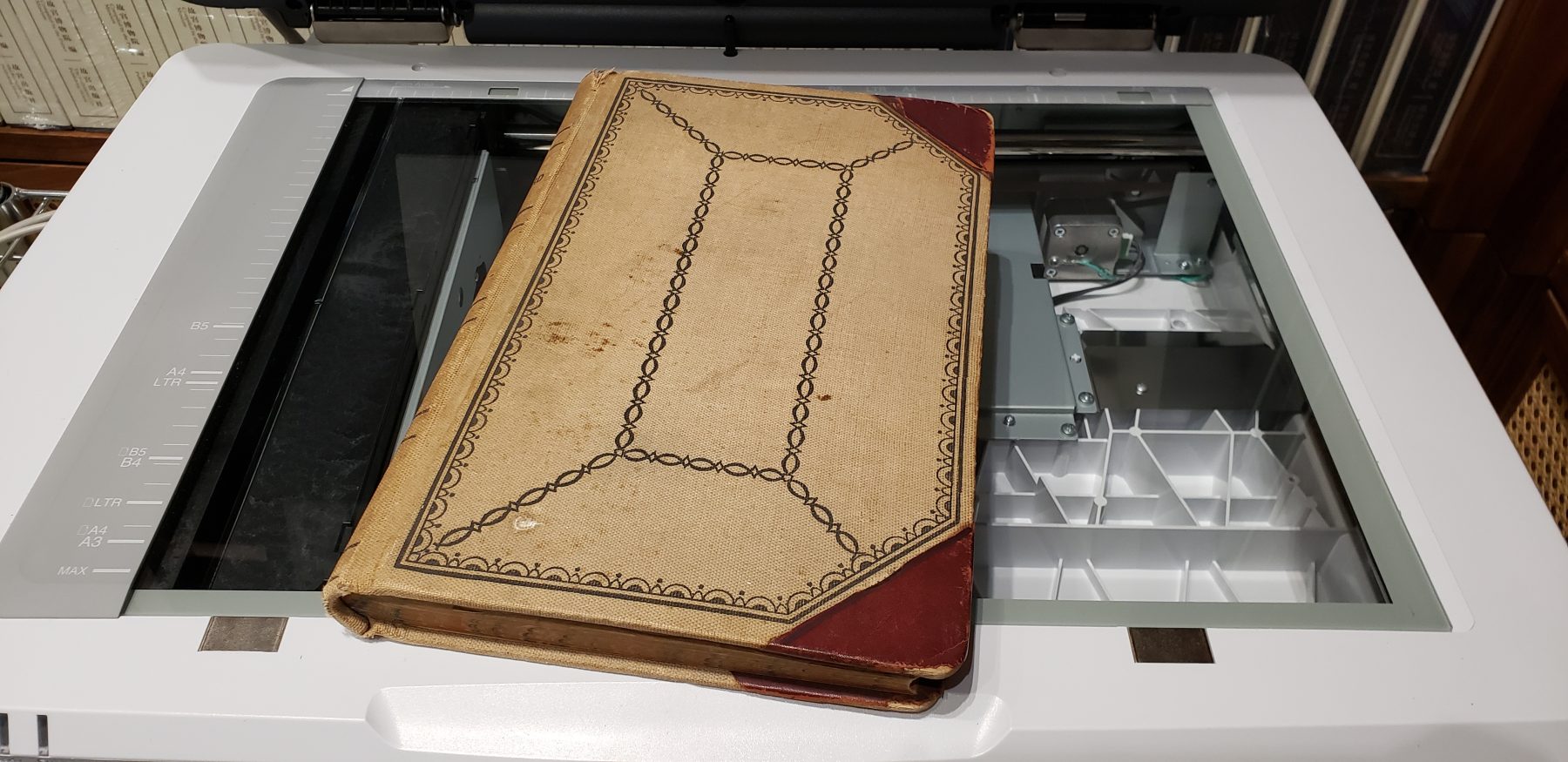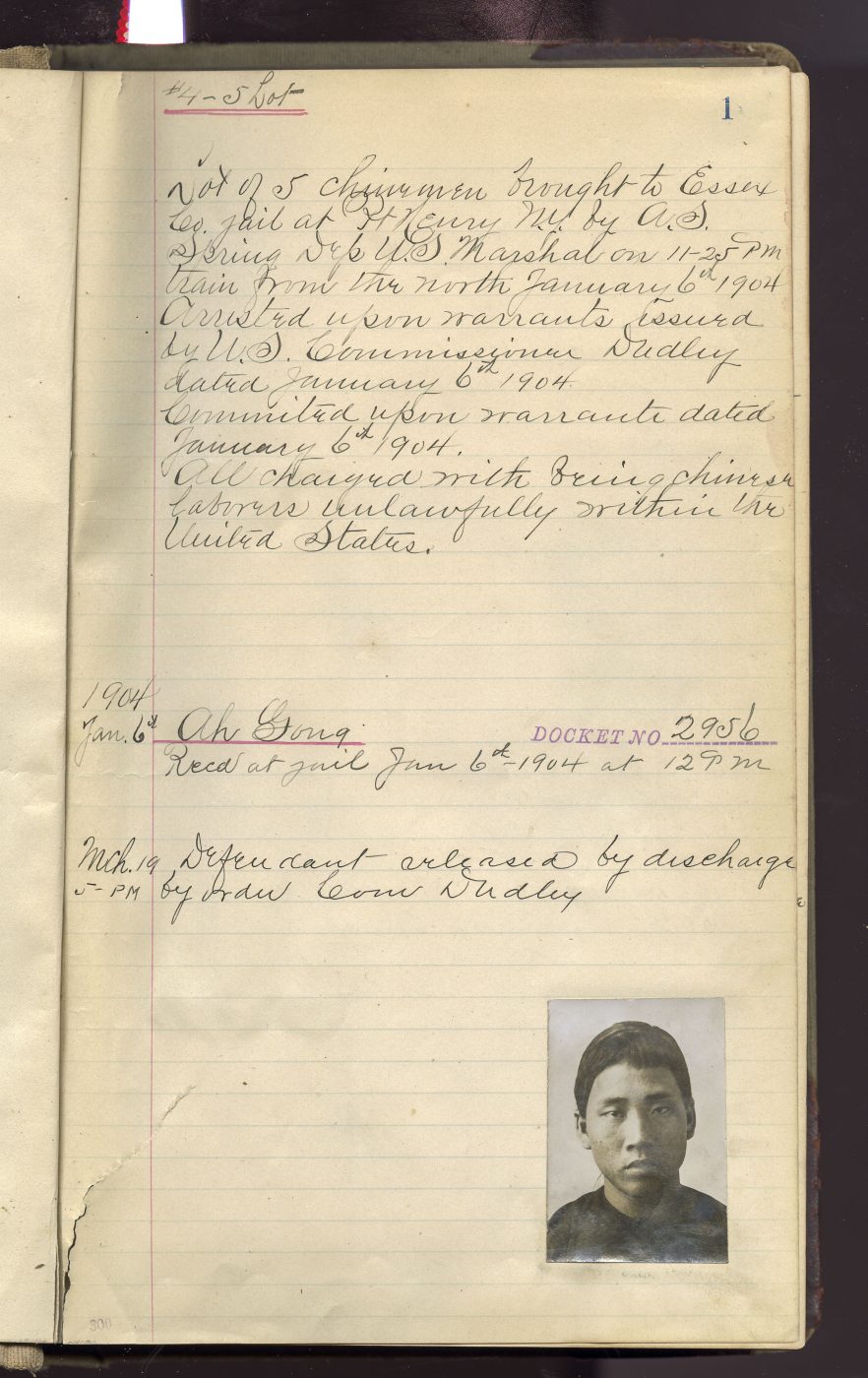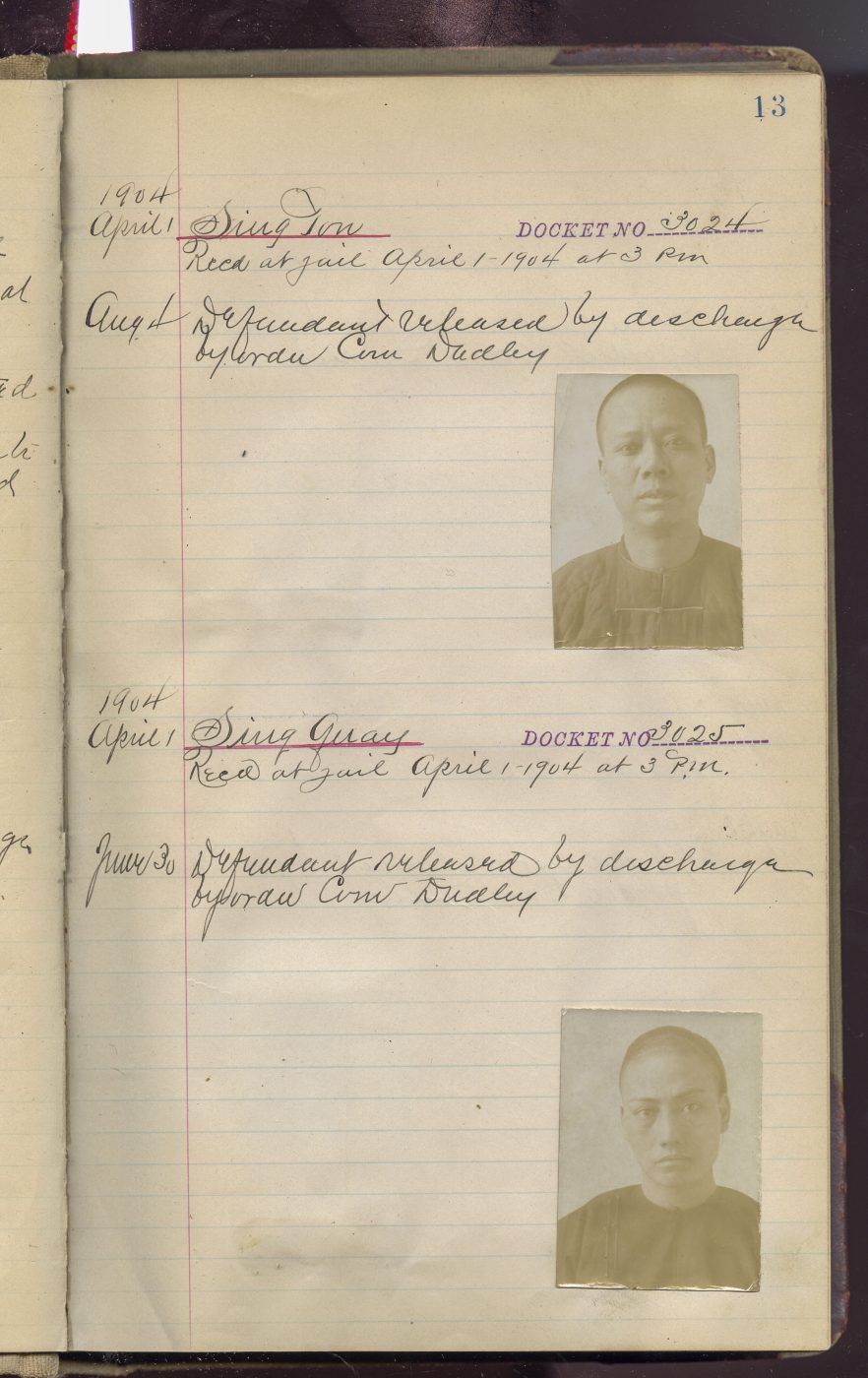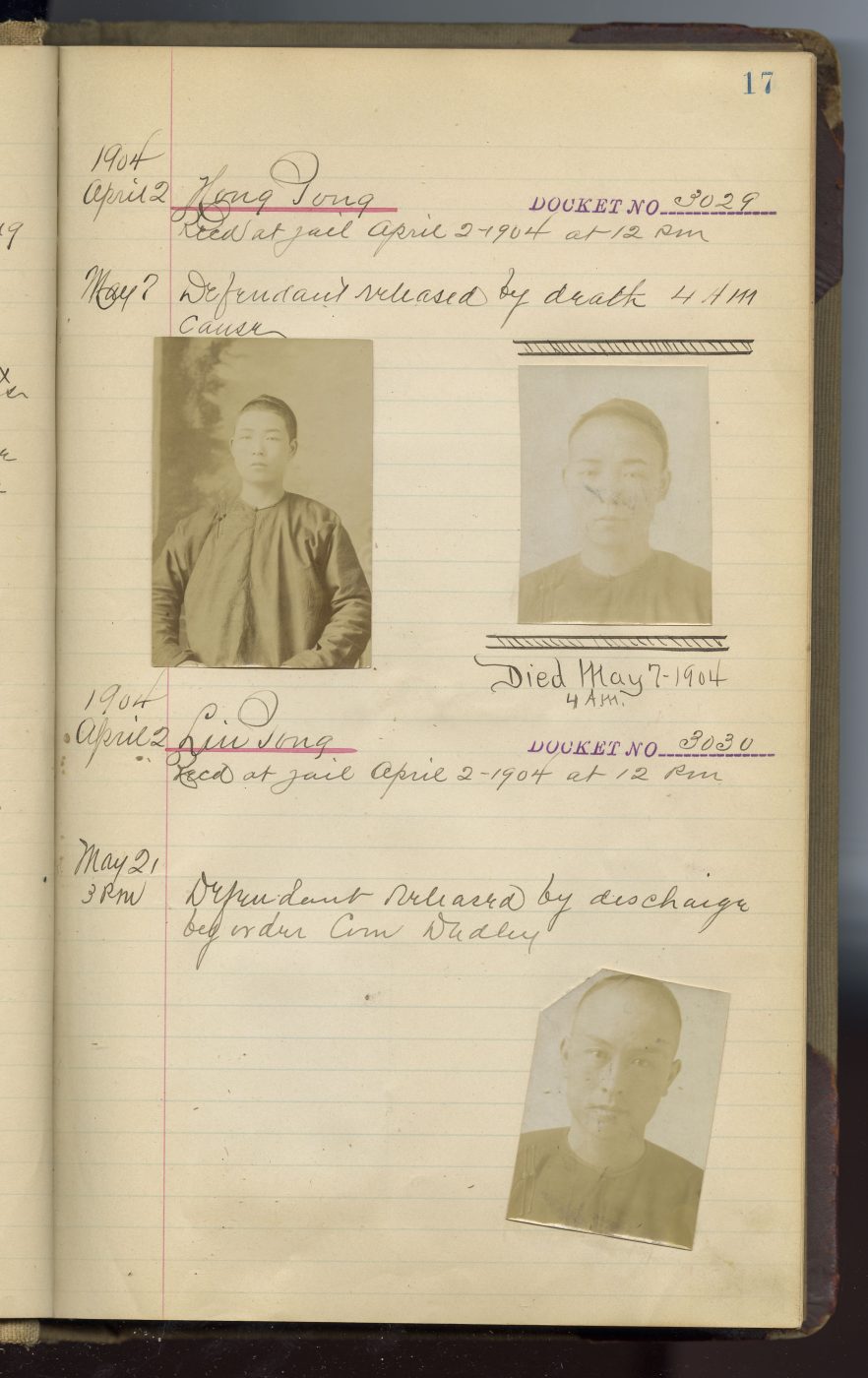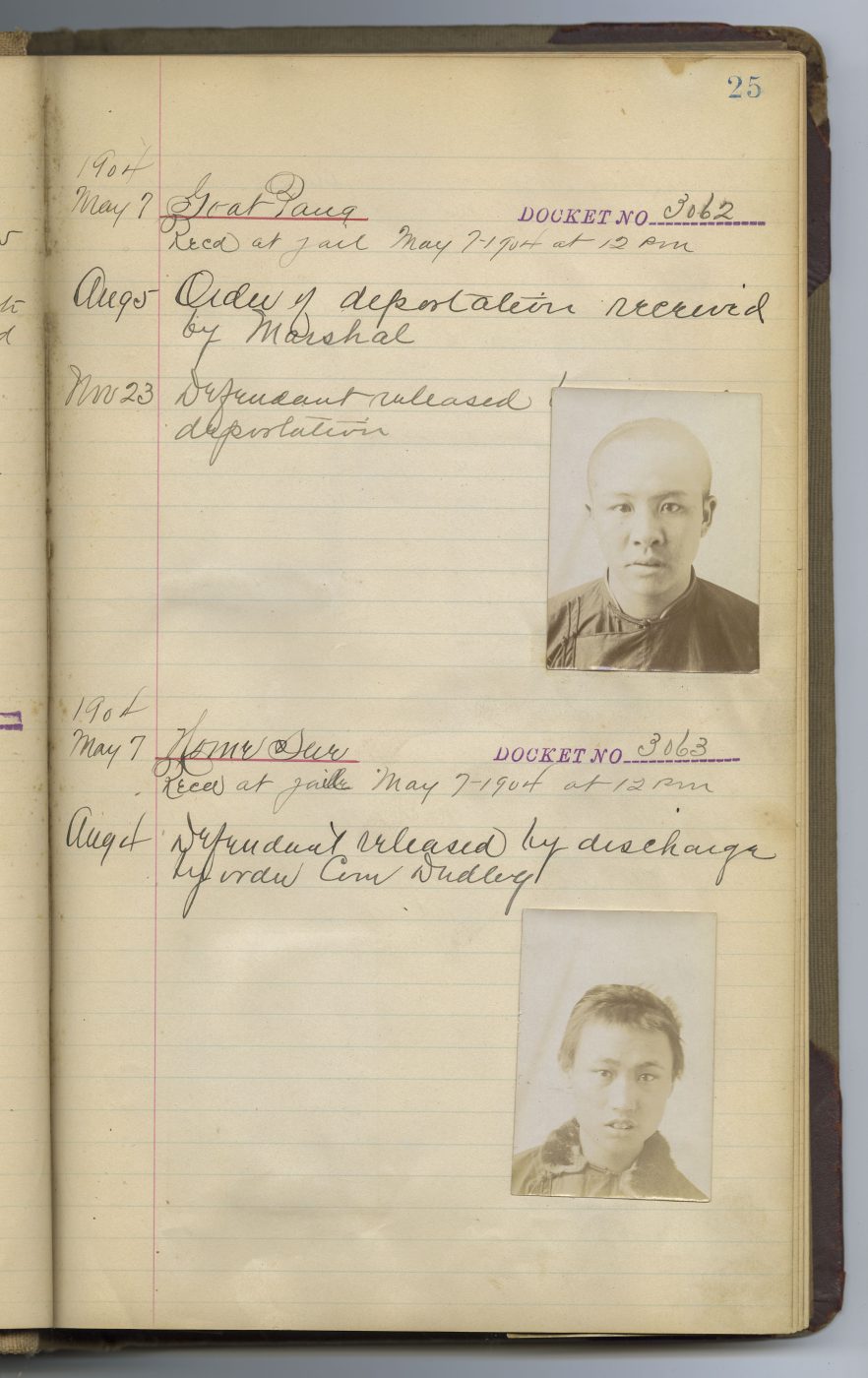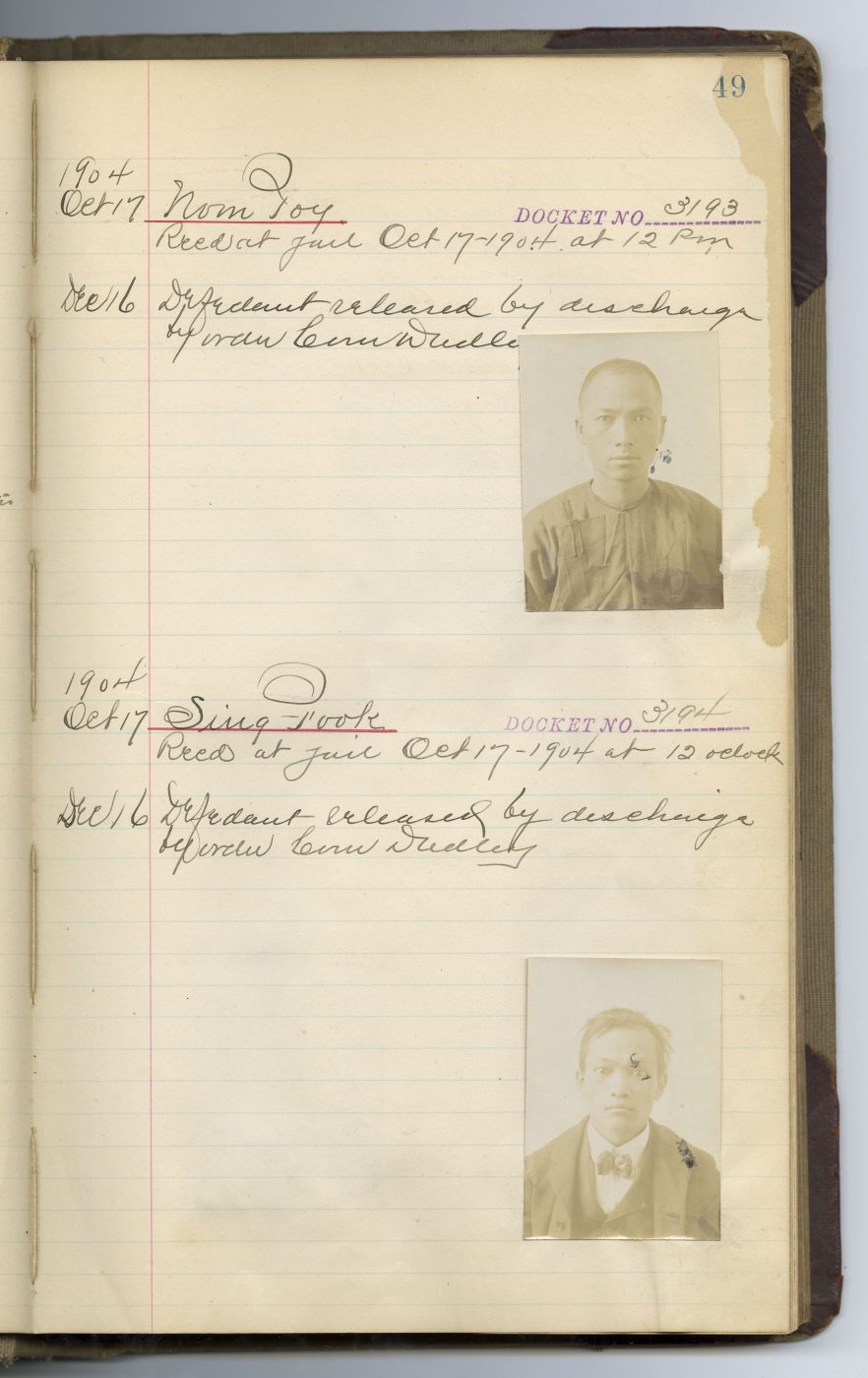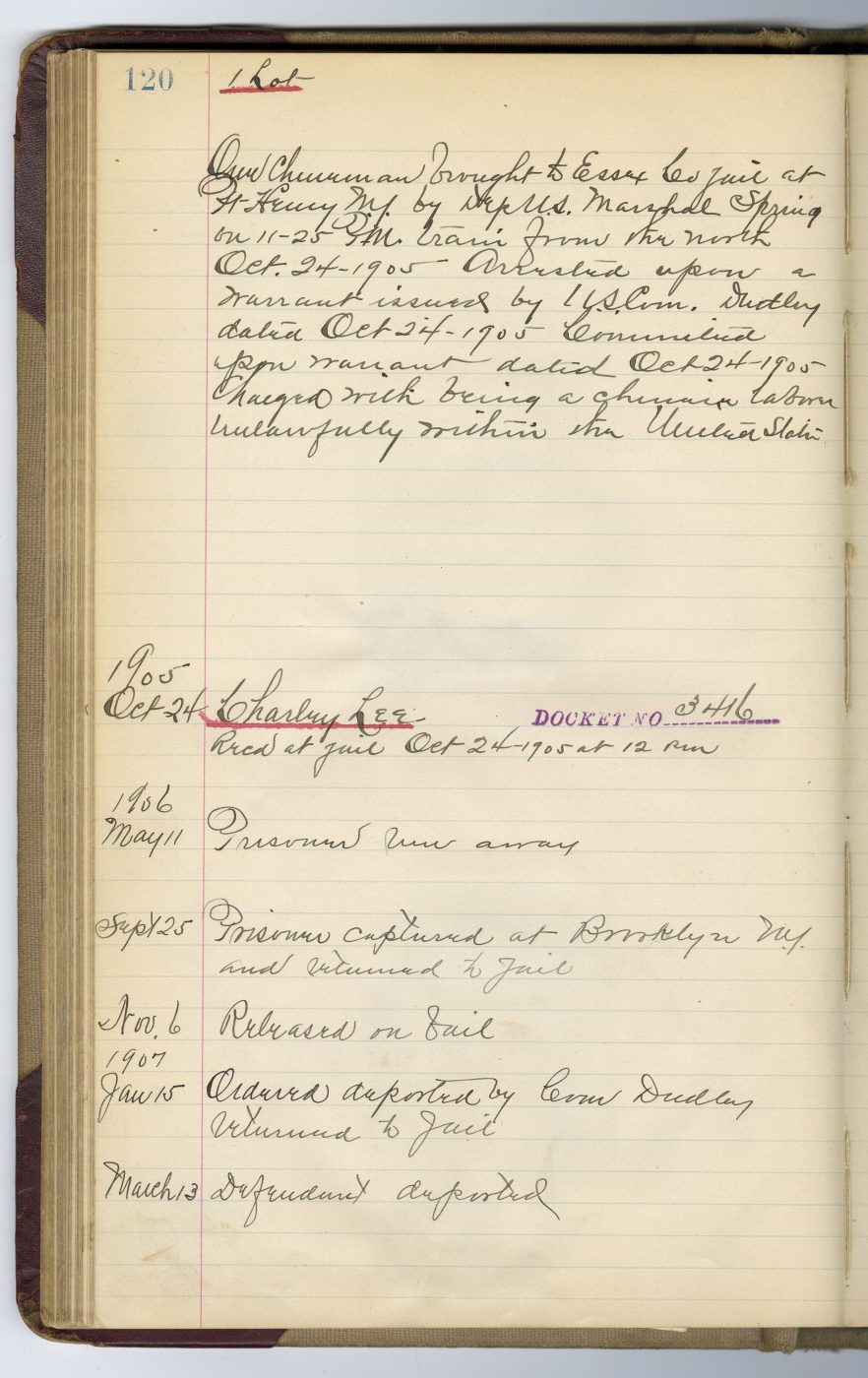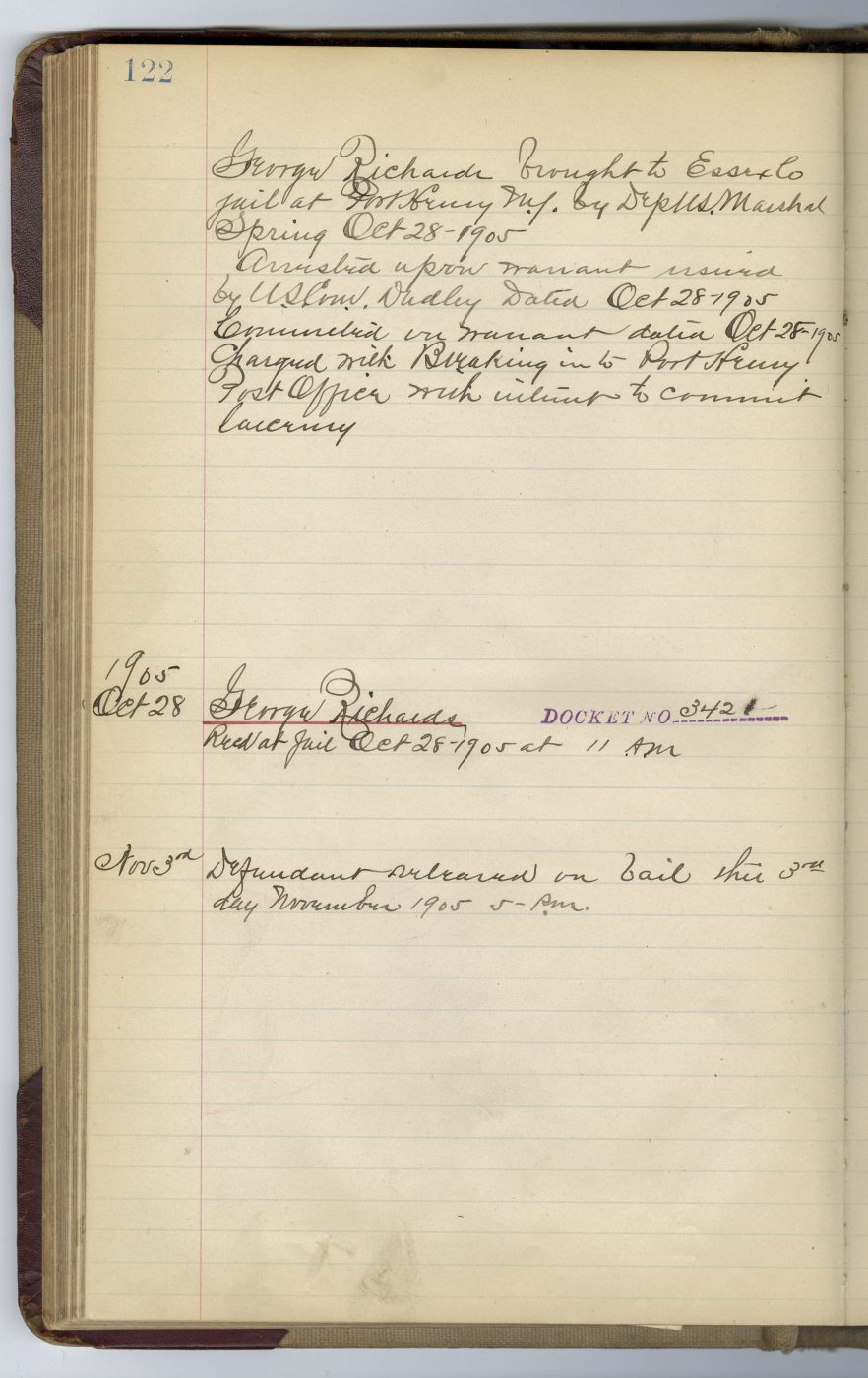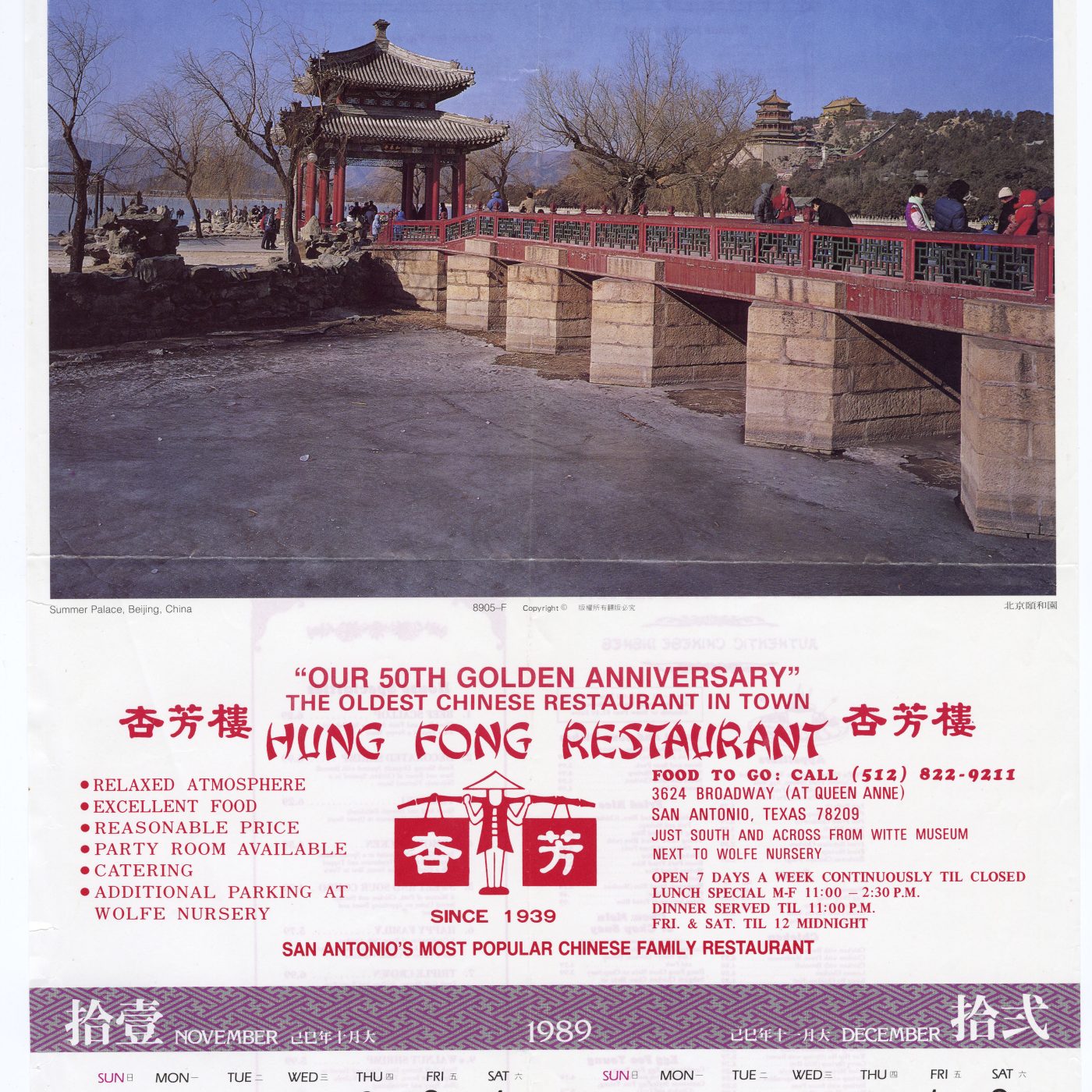This week we feature a recent donation related to Chinese immigration history in the New York area: a jail log book of detainees received by the Port Henry Jail once located in Essex County, New York. The 300-page log book was generously donated anonymously and features roughly 151 entries with names, photos, and details regarding the detention of Chinese migrants trying to cross into the United States by train from Montreal, Canada between 1904 and 1907. Based on the provenance notes attached to the donation, the Port Henry Jail was known locally as “The Chinese Jail” even up to the 1950s and early 1960s. The book was written and kept by the local railroad station manager, who was also tasked with maintaining the jail. Following the passing of the station manager, his wife gifted the log book to a local neighbor and friend and it ultimately was passed on and donated to MOCA.
As a century-old book, it has held up surprisingly well, with the binding intact and entry pages still robust and legible. In addition to being a historically important book, it can also give serve as a useful research tool for families researching their ancestry. Here we will feature a sampling of what the book has to offer for researchers. This book is recently accessioned, so we haven’t had time to process and catalog all the images yet. However, we have scans from an earlier accession of two logbooks that were also from Port Henry dated 1901-1903 that is available for access in our online database.
